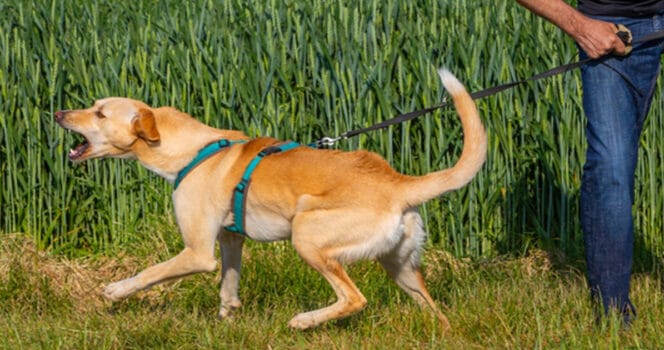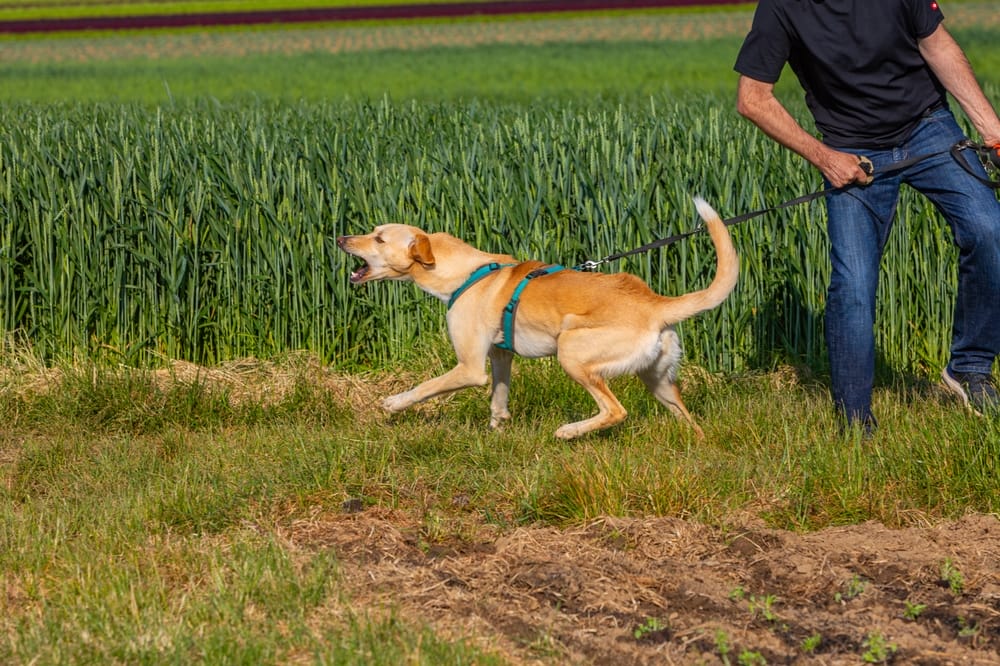
We all know dogs love a good chase. Whether it’s a tennis ball, a flying stick, or even their own tail, it’s pure joy for them.
But have you ever wondered why some dogs suddenly take off after people too?
Turns out, there’s a perfectly good reason behind this slightly embarrassing behavior.
Natural-born hunters
First off — it’s in their DNA. Dogs are natural-born hunters with a strong instinct to chase moving things. When someone jogs past your yard, your furry friend might see it as a fun game… or a threat to their territory. In their mind, they’re just doing their job: protecting their home and their favorite humans.
Sometimes, though, it’s not about defense at all. It’s about curiosity. Dogs are highly tuned-in creatures who notice everything.
A new person brings along unfamiliar scents, strange body language, or even a funny-looking hat. And yes, believe it or not, some dogs have been known to bark or chase people simply because they’re wearing sunglasses or speaking in a certain tone of voice.

Despite the occasional outburst, dogs are famously loyal and called a “man’s best friend” for a reason. If they bark or chase a stranger, it might actually be their way of saying, “Don’t worry, I’ve got your back.”
And remember that when I was growing up, we had a neighbor with two dogs. But after my dad had a quarrel with the neighbor, their dogs started showing aggression toward our dogs, like they had picked up the attitude!
Dogs can be ‘reactive’ – how to fix the problem
Of course, sometimes the behavior comes from fear rather than protection. A dog who’s had a bad experience with humans in the past might act defensive until they learn to trust again. That’s why early training and socialization are so important.
Sometimes when dogs start barking at people seemingly out of nowhere, we call that having a reactive dog!

“Dogs can be ‘reactive’ when out walking for a variety of reasons, including a conditioned response to feeling frustrated at not being able to greet another dog if on leash, or simple fear of a dog they’ve never met,” explains animal behavior expert Patricia B. McConnell, PhD, CAAB Emeritus, who has spent more than 25 years studying and working with dogs.
“Traditional responses have been to correct dogs for lunging, snarling or barking at dogs they see on the streets, but those methods can disguise the symptoms but make the internal response even more extreme.”
The good news? This kind of behavior can absolutely be fixed — and the earlier you start working on it, the easier it is to turn things around. Ignore it, though, and the problem will almost certainly get worse over time.
The key? Patience, exposure, and positive reinforcement. Reward them with treats and praise when they stay calm around new people. Over time, they’ll learn there’s no need to panic, or sprint after the mailman.
So next time your pup gets the zoomies around a stranger, remember; it’s probably not mischief, it’s instinct. And with a little love (and maybe a biscuit or two), they’ll soon learn that not every moving object is meant to be chased. 🐶💛
SHARE this if your dog has ever “protected” you from the jogger, the mailman, or the guy in the funny hat!





